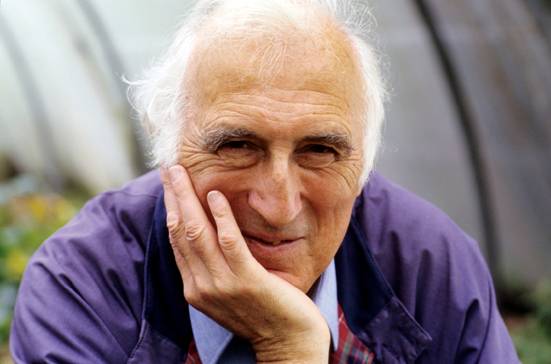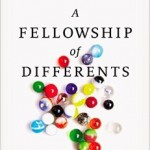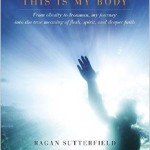Let me pick up on where Chris left off and post something here to mark the birthday of Jean Vanier. My first book was called Besides the Bible: 100 Books that Have, Should, or Will Create Christian Culture. The subtitle of Besides the Bible doesn’t really reflect the goal of the book, which was simply to recommend 100 books my co-authors and I thought every Christian should read. One of the essays I wrote for Besides the Bible was about Vanier’s masterpiece, From Brokenness to Community, a book that has profoundly influenced the way I think about community and communion. Here is what I wrote:
***
In Thornton Wilder’s play The Angel That Troubled the Waters, a soul-sick physician comes to a pool where, in certain seasons, the water is stirred up by an angel of the Lord. The first invalid to jump in the water is healed. But when the physician approaches, the angel tells him to draw back. The doctor makes the case that if he can just get in the pool, if he could only be released from his spiritual bondage, then his ability to do good works will increase. He also appeals to the angel’s pity and sense of fairness, asking why he must accept a greater burden than his neighbor. Again the angel orders him to draw back, saying “This healing is not for you.” The angel explains that the physician’s authority emanates not from his wholeness but in his recognition of his brokenness. The doctor can treat the sick because he knows what it is to be sick. He can offer rest because he knows what it means to be weary. The physician’s healing powers are even greater than the angel’s because the physician is capable of true compassion, which literally means “to suffer with.”
The moral of Wilder’s story—“In Love’s army, only wounded soldiers can serve”—is the message at the heart of Jean Vanier’s magnificent little book, From Brokenness to Community. When we follow Jesus, writes Vanier, we are called to reject certain aspects of the world. We accept loss of wealth and status and comfort. We embrace downward mobility and climb back down the world’s ladder of success. This process can begin when we discover our mutual brokenness. We acknowledge our poverty and then we understand what it means that Jesus came to serve the poor. We recognize our infirmity and then we discover God doesn’t work primarily through those who think they are well, but through those who know they are sick. All this happens in the context of community—a place of pain and trial, but also reconciliation and celebration. Community is where the ego goes to die, and in its place we find resurrection, communion, and even salvation.
Vanier’s wisdom is rooted in experience. Born a child of privilege (his father was Governor General of Canada), Vanier left home at age 13 to join the British navy at a time when Hitler’s submarines were sinking one out of every three British boats. In 1950, Vanier resigned his officer’s commission to attend university. As a student in Paris, Vanier joined Eau Vive (“Living Waters”), a spiritual community founded by the Dominican priest Thomas Philippe. After earning a doctorate in moral philosophy from the Institut Catholique in 1962, he returned to Canada to begin his career as a professor and scholar. But Vanier’s life changed course again when he returned to France in 1963 to visit his old mentor, Father Philippe, who was serving as a chaplain for about thirty people with intellectual disabilities at an institution in the French village of Trosly Breuil. Philippe urged Vanier to “do something” for people with developmental disabilities. One year later, in 1964, Vanier invited two men with disabilities to live with him in a house in Trosly Breuil. Vanier called their home L’Arche (“The Ark”).
Today there are over 130 L’Arche communities in some 30 countries. Unlike a medical or social service model of care, L’Arche homes operate on a “community model”—six to eight people, with and without intellectual disabilities, living life together. Everyone has something to contribute. “The secret of L’Arche,” Vanier has said, “is relationships: meeting people, not through the filters of certitudes, ideologies, idealism or judgments, but heart to heart, listening to people with their pain, their joy, their hope, their history, listening to their heartbeats.”
More than twenty of Vanier’s books are available in English, but their essence is distilled in From Brokenness to Community, which was first delivered as a pair of lectures at Harvard Divinity School in November 1988. At 52 short pages, this book can be read in less than an hour. But why would you want to? Better to savor it. Book lovers are always on the look out for books with the potential to change everything. Gentle readers, this is one of them.












